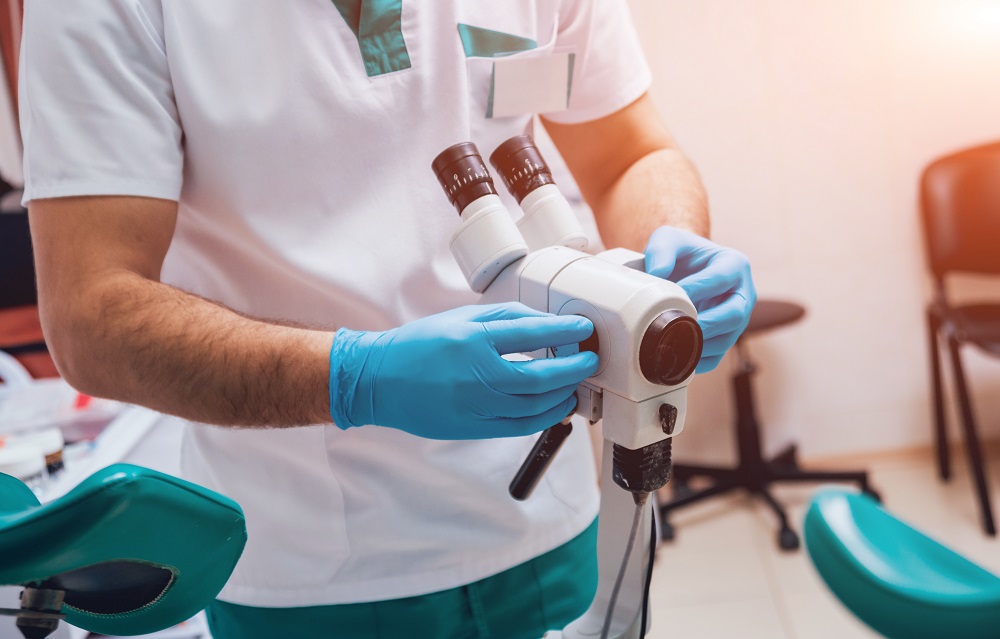A colposcopy examination is carried out to check whether there are abnormal cells on your cervix, and if so, how serious they are. This is a follow-up to your cervical screening test.
Just like at your screening test, the consultant will put a speculum into your vagina and open it gently. They will then use a colposcope to take a close look at your cervix. The colposcope does not go inside you, or even touch your skin. It stays about 30cm (12 inches) outside your vagina. The image of your cervix from the colposcope will sometimes be on a screen. This helps the consultant see your cervix more clearly.
The consultant will dab different liquids onto your cervix. The liquids make any abnormal cells a different colour so that they can be seen more easily. If the consultant finds anything unusual they may take away a small tissue sample, a few millimetres across (a biopsy). The biopsy will then be sent for analysis.
The examination can feel uncomfortable and some people may feel some pain. If it feels painful, tell the nurse or doctor and they will try to make it more comfortable for you.





